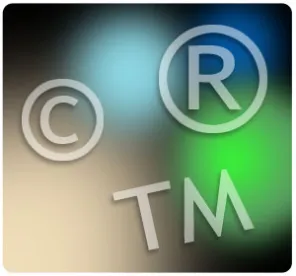The Court of Appeals for the Federal Circuit reversed over 30 years of precedent as it held unconstitutional the Section 2(a) disparagement bar of the Lanham Act on December 22, 2015. In a 9-3 vote, the Federal Circuit ruled that the provision is an impermissible restriction on speech and thus violates the First Amendment. In re Simon Shiao Tam, Appeal No. 2014-1203, 2015 WL 9287035 (Fed. Cir. Dec. 22, 2015). This holding creates a circuit split and will likely invite Supreme Court review.
Lanham Act § 2(a) Disparagement Bar
Section 2(a) of the Lanham Act sets forth a number of bars to federal registration of trademarks. Since 1946, it has prohibited federal registration of marks “which may disparage.” This disparagement bar does not prohibit use of the mark, but does prevent a party from receiving the benefits of federal registration.
Courts in at least three circuits have upheld the constitutionality of Section 2(a). In 1981, the Court of Customs and Patent Appeals (the Federal Circuit’s predecessor court) held that Section 2(a) does not implicate the First Amendment because it does not bar the applicant from using the mark. In re McGinley, 660 F.2d 481, 484 (C.C.P.A. 1981). The Fifth Circuit has similarly held that the disparagement provision does not violate the First Amendment, citing McGinley without further analysis. See Test Masters Educ. Servs., Inc. v. Singh, 428 F.3d 559, 578 n.9 (5th Cir. 2005). More notably, a recent Eastern District of Virginia case concerning the infamous Washington Redskins marks also concluded that the cancellation of trademark registrations under Section 2(a) does not violate the First Amendment. Pro-Football, Inc. v. Blackhorse, No. 1:14-cv-01043-GBL-IDD, *8-10 (E.D. Va. Jul. 8, 2015). The Redskins’ case has been appealed to the Fourth Circuit.
Until now, the Federal Circuit has upheld its predecessor’s holding in McGinley. In re Tam breaks from this precedent to hold—for the first time at the appellate court level—that Section 2(a) violates the First Amendment.
In re Tam
Five years ago, Simon Tam submitted a trademark registration application for “The Slants,” the name of his Asian-American rock band. Although Tam argued that the mark was designed to reappropriate stereotypes to empower people of Asian descent, the Trademark Office refused to register the mark. The Examiner found that the mark was likely disparaging to “persons of Asian descent” and thus violated Section 2(a). Tam appealed, arguing both that the mark is not disparaging and also that the disparagement bar is unconstitutional. Based on the binding precedent set forth in McGinley, the Trademark Trial and Appeal Board and the Federal Circuit initially upheld the Examiner’s refusal.
On its own initiative, the Federal Circuit ordered rehearing en banc on whether the Lanham Act’s bar on registration of disparaging marks violates the First Amendment. According to the majority, the answer is yes.
The Tam court held that the Section 2(a) disparagement bar violates the First Amendment because it “applies to particular speech because of the topic discussed” and permits the government to singlehandedly decide whether to approve or disapprove the message conveyed by the speech. Because the disparagement bar discriminates on the basis of content and viewpoint, the Tam court held that the provision is subject to a “strict scrutiny” level of review, but that it would violate the First Amendment even under the lesser ”intermediate scrutiny” standard.
The Tam court rejected the government’s arguments that Section 2(a) does not outright ban speech; that it is government speech; and that it is protected by the government-subsidy doctrine. Notably, while previous opinions found that Section 2(a) does not implicate the First Amendment because it does not prohibit any speech, the Tam court held the argument unpersuasive because Section 2(a) nonetheless has a “chilling effect” on speech. Emphasizing that federal registration provides significant legal benefits, the court noted that denial of these benefits creates serious disincentives to use such marks.
Takeaways
For The Slants, and for others who want to register trademarks that may be considered insulting, this ruling is good news. If the ruling stands, then such trademarks will be equally entitled to the protections afforded by federal registration.
Beyond this case, this opinion creates a circuit split in trademark law: In re Tam directly conflicts with the Fifth Circuit approach. However, the Fifth Circuit precedent largely relied upon McGinley, which the Federal Circuit overturned in Tam. Attention will now be on the Fourth Circuit as it applies Section 2(a) to the Redskins marks. The district court in Pro-Football had reasoned that Section 2(a) did not violate the First Amendment because (1) the registration bar does not prohibit speech and (2) the federal trademark program is government speech—two arguments expressly rejected by the Tam majority. If the Fourth Circuit upholds the district court opinion in Pro-Football, then the Federal Circuit will conflict with both the Fourth and Fifth Circuit. In either event, it is likely that the Supreme Court will be asked to resolve the dispute.
This ruling may result in even broader implications for trademark registration bars. While the Tam court expressly limited its holding to the Section 2(a) disparagement provision, the majority opinion noted other portions of Section 2 (such as the bar on registration of “immoral” marks) that may likewise constitute government regulation of expression. Further, the court noted that “nearly every state” contains similar prohibitions in their trademark laws. In re Tam may become the catalyst for attacks on each of these registration bars.



 />i
/>i
